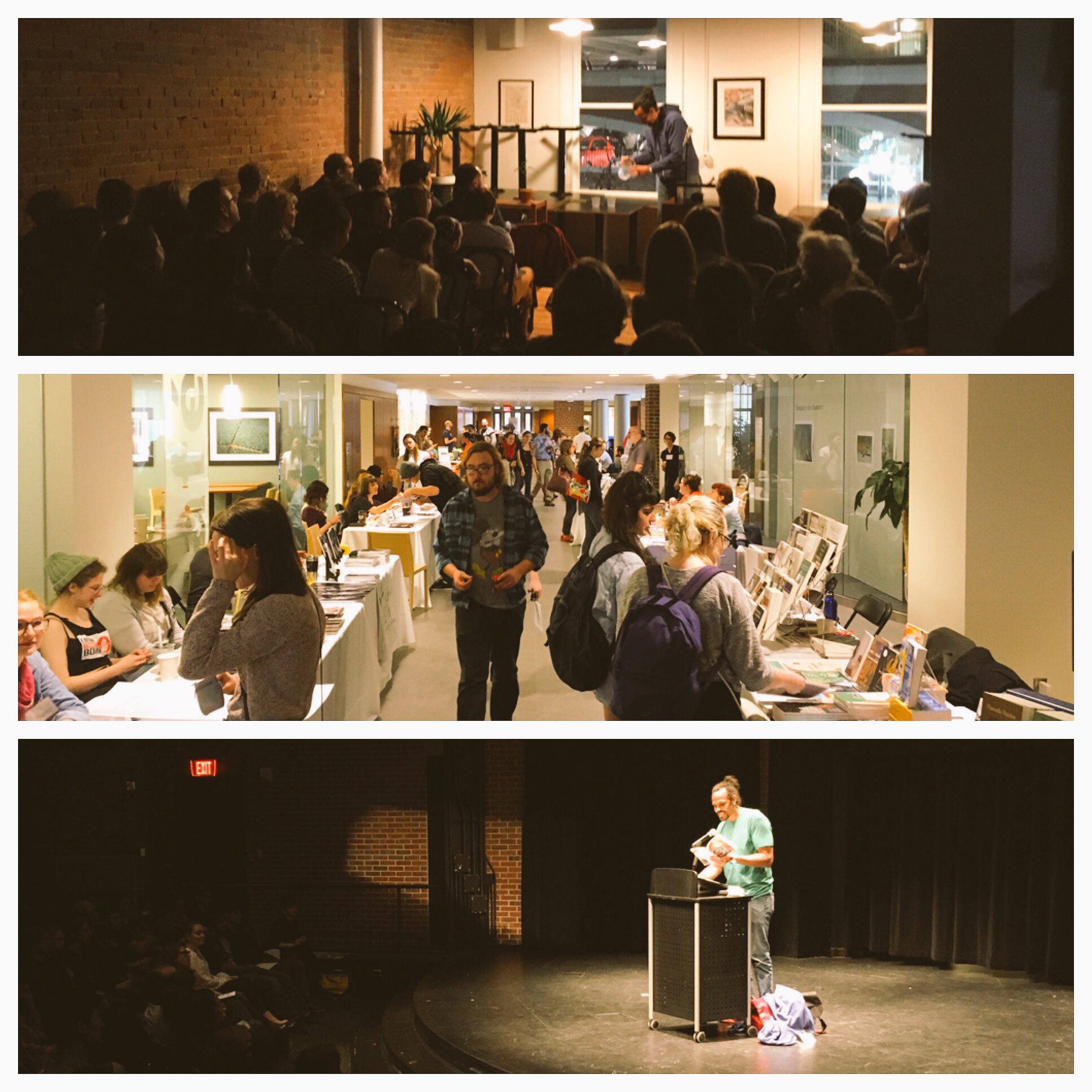
If you happened to be in East Quad last Saturday, you might have been surprised to find yourself in the middle of a bookfair. The main atrium was stuffed with tables featuring booksellers, publishers, and various literary magazines (both student and non-student run). For a book-lover, or any person nostalgic for the days of elementary school bookfairs, this was a dream come true.
In the basement of East Quad, at the Keene Theatre, were panels running all day long with publishers, authors, and professors. I attended the panel on the Midwestern character with the authors Angela Flournoy, Fred Arroyo, Peter Geye, and Phong Nguyen. The panel purported discussion on both the character of the physical landscape and the people, but ended up leaning towards the former. Though the desire was not articulated, a main function of the panel seemed to be to dispel the notion that the Midwest is bland, boring, and indistinct–that unlike the coasts or the cities, the in-between has nothing noteworthy to say. However, as the panel pointed out, five of the nine Americans who have won the Nobel Prize for Literature were from the Midwest and many of America’s “great” writers, such as Mark Twain, also hailed from here. The argument then shifts from whether or not we have a voice to whether or not our voice is too ingrained in America’s literary tradition to distinguish between the Midwest and the rest of America–can we exist and thrive as a unique entity when the Midwest often seems to speak for all of America? But even this goes unrecognized–the Midwest is usually thought of as having no literary tradition of any importance rather than as the stronghold of the American literary voice. As Angela Flournoy pointed out, “Midwestern writers are often recruited to other places,” and this applies especially to the loud ones, the ones who rebut the meekness that is expected of them. She used Toni Morrison as her example, who, in spite of the fact that she was born in Ohio, is often seen as a Southern writer.
But the panel talked about more than just the voices and the literary traditions of the Midwest–they also discussed the landscape of this place. Fred Arroyo stated that “the stories are in the landscape.” What he meant by that is that when you look around, when you see a rusting farm, an abandoned factory, a foreclosed home, when you see these things that are just a passing glance in your world, you’re seeing the loss and heartbreak of someone else’s story. You can’t get very far without finding something to write about. Furthermore, there’s always the question of the place, of this very point of latitude and longitude. From one perspective, it’s just an endless, rolling sea of plains and as Geye asked, “why come here?” That’s a question these writers consider when situating there stories (and also a question that was considered by the pioneers who stopped here instead of continuing on their way)–why here? Why not further west with it’s deserts and mountains, or the east coast with its seas and cities? What drew us here?
I’m not sure that’s a question I can answer–at least, not for anyone but myself. What I will say is that after that panel I found myself thinking of the importance of having literature that features your home or places like your home. People often read books hoping to find something of themselves–and they can do that without the book taking place in their hometown, but every place is unique and every city has it’s own set of stories. And for those of us who didn’t grow up in NYC, it can be difficult to find books about the world in which you live, about the highways that never end, the cornfields changing with the seasons, the silence of cities sleeping under the snow, the rusted and vacant buildings, about, well, home. To me, that’s the point of the Voices of the Middle West Festival: to celebrate the books written by us and about us.

